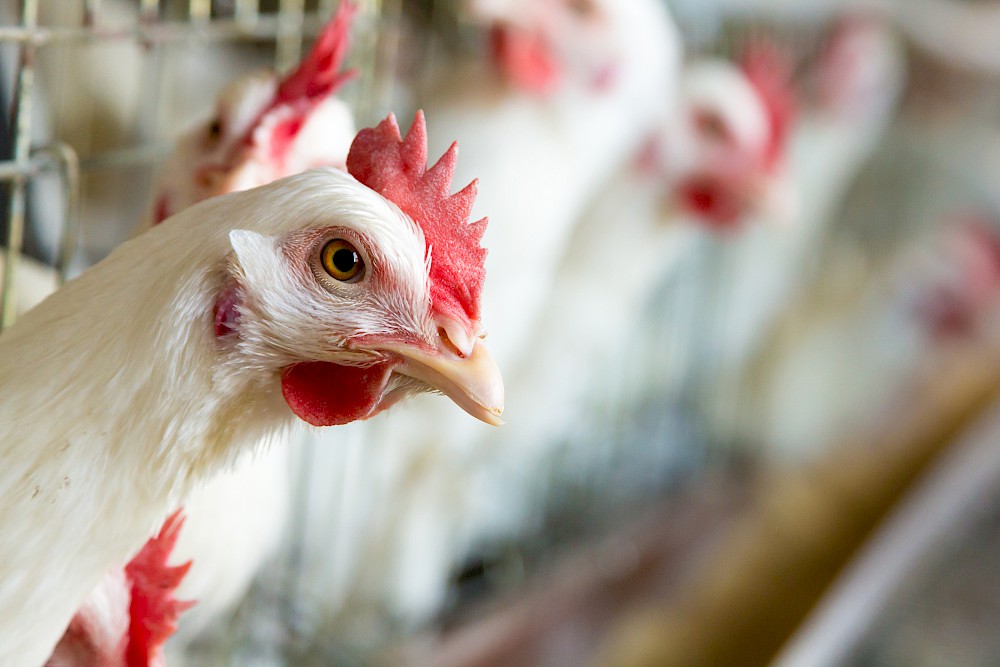Great Eggs Start with Well-Fed Hens

Did you know a hen’s diet directly impacts the quality and nutritional value of the eggs she lays? That’s why at Versova, we have a carefully structured team of engineers, nutritionists and feed experts who run a specialized, computer-controlled “kitchen” to ensure each feed formula is made with high-quality ingredients, according to the recipe that best suits each of our flocks. Our hens receive perfectly balanced diets each day that provide them with the precise amounts of vitamins, minerals and macro-nutrients required for their life stage. That’s right – our flocks are fed diets that are specifically developed for them based on their breed, age and production rate.
A common misconception is that shell color influences an egg’s flavor, quality or nutritional value. Brown eggs and white eggs that are laid by hens who are consuming the same feed ration will contain the same essential nutrients – the only factor that determines the color of an egg is the color of the hen’s feathers and earlobes.
Additionally, egg yolks get their yellow color from corn mixed into the hen’s diet. Hens transfer yellow xanthophyll pigments from the corn into the egg yolk, which gives them a rich yellow or gold color. If a hen is fed a ration made with white corn or wheat that doesn’t contain yellow pigments, she will lay eggs with yolks that are pale yellow in color.
When a hen’s diet is supplemented with special nutrients, the eggs she produces will often include higher levels of that specific nutrient. The ingredients we use in our feeds are always safe for our flocks, and often mutually beneficial for hen health and egg nutrition.
Here are a few nutrients and ingredients that are commonly mixed into Versova’s feed rations to ensure our hens are healthy and laying nutritious, high-quality eggs:
- Calcium: Egg-laying chickens require a high level of calcium in their diet so they can produce strong eggshells. The amount of calcium a hen needs depends on her age and production rate. For example, pullets (young hens) that aren’t yet laying eggs don’t need as much calcium as a hen that’s in peak production and is laying an egg nearly every day.
- Protein: It’s especially important for pullets to have an increased level of protein supplemented in their diet as they’re growing and building the foundation to become productive laying hens. As hens age, their level of needed protein decreases, but remains an essential nutrient for egg-laying hens to support strong shells and steady egg production.
- Vitamins and minerals: Whether naturally found in the crops included in feed rations, like corn, soybeans or wheat, or added manually as a supplement, vitamins and minerals promote steady egg production and strong shells. Some are passed easily from the hen to the egg during lay. For example, Vitamin D is supplemented in our hens’ feed to support strong shell development and is transferred directly to the egg and into your diet.
Versova understands that egg quality starts with hen health and nutrition, and our teams take that responsibility seriously. Above all, the primary focus of Versova’s nutrition program is ensuring our flocks are receiving the nutrients they need to live healthy, happy lives, while producing safe, nutritious eggs for families across the nation.
